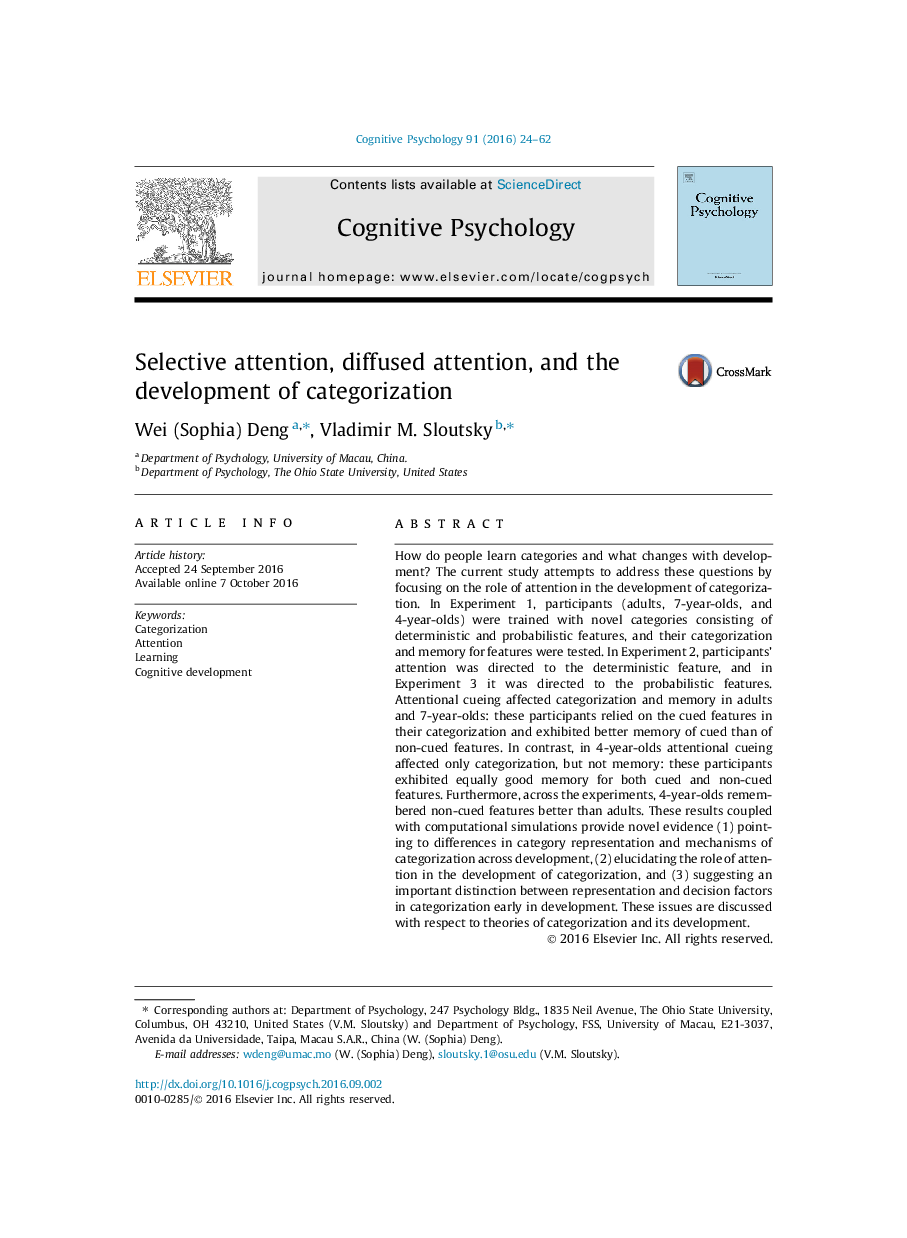| Article ID | Journal | Published Year | Pages | File Type |
|---|---|---|---|---|
| 5039729 | Cognitive Psychology | 2016 | 39 Pages |
â¢How do people learn categories, what do they remember, and what changes in the course of development?â¢Adults attend selectively and remember primarily category-relevant information, whereas young children attend diffusely and remember all information.â¢As a result, young children have better memory for category-irrelevant information than adults.â¢These findings coupled with computational modeling point to developmental differences in the mechanism of categorization.
How do people learn categories and what changes with development? The current study attempts to address these questions by focusing on the role of attention in the development of categorization. In Experiment 1, participants (adults, 7-year-olds, and 4-year-olds) were trained with novel categories consisting of deterministic and probabilistic features, and their categorization and memory for features were tested. In Experiment 2, participants' attention was directed to the deterministic feature, and in Experiment 3 it was directed to the probabilistic features. Attentional cueing affected categorization and memory in adults and 7-year-olds: these participants relied on the cued features in their categorization and exhibited better memory of cued than of non-cued features. In contrast, in 4-year-olds attentional cueing affected only categorization, but not memory: these participants exhibited equally good memory for both cued and non-cued features. Furthermore, across the experiments, 4-year-olds remembered non-cued features better than adults. These results coupled with computational simulations provide novel evidence (1) pointing to differences in category representation and mechanisms of categorization across development, (2) elucidating the role of attention in the development of categorization, and (3) suggesting an important distinction between representation and decision factors in categorization early in development. These issues are discussed with respect to theories of categorization and its development.
